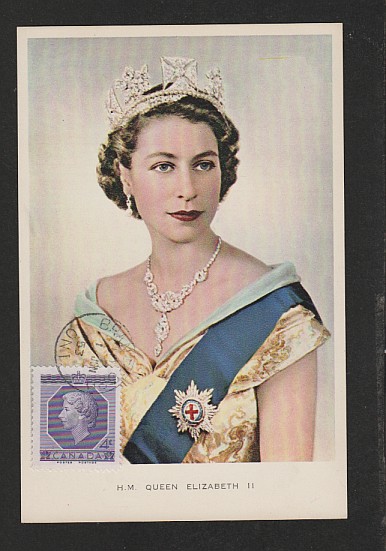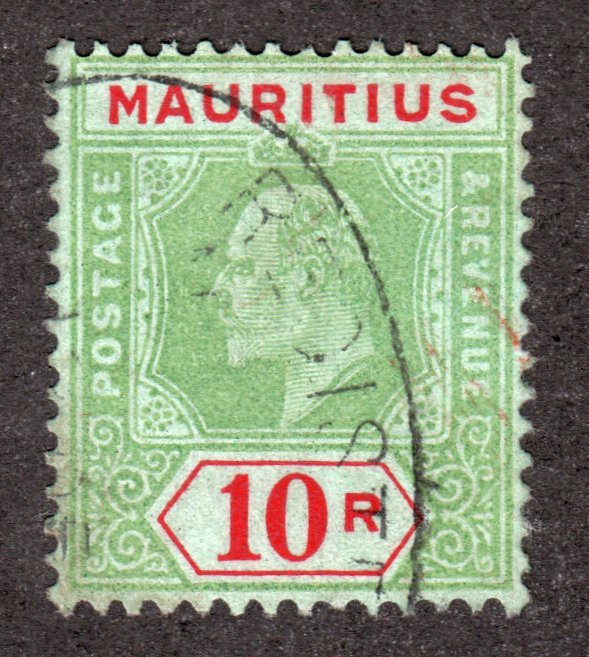
Discussion - Member to Member Sales - Research Center

Discussion - Member to Member Sales - Research Center


11:37:02am


Roy

Login to Like
this post
Nice card.
It refers to the short-lived Carpatho-Ukraine state.
This declared independence on 15th March 1939 but was occupied by Hungary by the next day.

Login to Like
this post
wasn't this the territory that seceded from Czechoslovakia?

Login to Like
this post
Yes, Czechoslovakia split apart at this time.
Slovakia seceded on 14th March and Germany invaded Bohemia and Moravia on the 15th.

Login to Like
this post
thanks Nigel

Login to Like
this post
Roy:
This is a fabulous postcard.
Imagine, a country that existed for less than a day;
fiction couldn't top this real-life story.
I can read so much into that postcard that it
would span the historical gap to today. You are so
fortunate to have it.
Thanks to you, we can all enjoy this philatelic
gem even though it lacks a postage stamp.
John Derry

Login to Like
this post
great observation, John
the other thing that this helps document is the amazing number of political entities that existed in what we once called Czechoslovakia, some for a day, many for generations, several for a couple of different iterations and completely different governments.
David

Login to Like
this post
Odd that it should be inscribed "Merry Christmas and a Happy new Year" if the country only existed for a day in March!
Tony

1 Member
likes this post.
Login to Like.

10:00:19am
I suppose some collector, knowing what was about to happen, m,ay have felt the need to scurry around and find a useable card and write something innocuous, which documented the existence of the rump state before the Hungarians troops made their way c=down the street.
On the other hand, someone with the presence of mind to do that should also have been able to think of some traditional holiday to extend his good wishes that was not nine months away.
Then it is possible that the common phrase was a secret code word or phrase such as ".... Blessent mon cœur d’une langueur monotone. ...." an part of a well known French poem which alerted underground agents that the invasion of Europe was imminent.
I like the last possibility, notwithstanding its being unlikely.

Login to Like
this post
I think it was amazing that they could generate any type of material for a country that had only one day of existence. Was the card made before or after the country was actually it own country? I would think after, since there is the mention of Christmas. Are there any postal items that were authentically used available?
Mike

Login to Like
this post
I'm a little late in posting a response, but here are my two cents...
Being half Latvian, I'm fairly well-acquainted with propaganda cards from that country. This might be a similar product. Patriotic organizations would often ignore the political reality of the day and continue to issue cards, labels, etc. in the name of the "country" they supported. The Carpatho-Ukraine state might have ceased to exist after a day; but that didn't mean that its concept ceased to exist for the Ukrainian minority in the region. Tangentially, it's an interesting contre temps to the situation in Ukraine today.
Most Latvian patriotic/propaganda cards steadfastly portrayed Latvia as a still-independent state throughout the 1950's to the early 1990's; and I can tell you that most of our family friends thought of it no differently throughout the Soviet Occupation (I guess I did too... hmmm). I can't do Cyrillic; but it would be interesting to know what the subscript on the back of the card says in terms of printer, city, etc. It doesn't look like there's a date on it for a reference point.
This stuff is all hugely interesting from the propagandist perspective, whatever the source. I have a cancelled Danzig stamp with a postmark for the date of the German "liberation" of Danzig at the start of World War Two. The postmark is from Danzig and contains the slogan (paraphrasing because it's buried in my collection somewhere) "Der Fuehrer hat uns befreit" - The Fuehrer has freed us. Whether it is real or not (and I don't care if it is because of the interest it holds for me), it's an interesting concept. Were the Germans so organized that they prepared postal cancellations for letters in a city they were certain to occupy? Remember the propaganda machine that was the Third Reich and its invasion of every aspect of everyday life to ingrain the totality of their rule. Perhaps possible (and it makes for a better story that way), otherwise, it was a fake; but a fake that was so well thought out that it treated the political and military reality as yet another instrument to ingrain a political opinion for the populace. Stamps, postcards and letters are propaganda tools for each and every government and organization that has ever issued the same. Make no mistake about it. Some were just more obvious in their efforts than others.
Andrew

2 Members
like this post.
Login to Like.
Hi Andrew,
Yes, I see this card as celebrating the memory of the Carpatho-Ukraine (which I guess you could call propaganda).
The words at the bottom read something like:
"New Way Edition
(Income intended for the Carpatho-Ukraine Fund)"

Login to Like
this post
BuckaCover.com - 80,000 covers priced 60c to $1.50 - Easy browsing 300 categories
14 Feb 2014
11:37:02am
Any help with this item appreciated:


Roy

Login to Like
this post

re: Eastern European / Russian postcard
Nice card.
It refers to the short-lived Carpatho-Ukraine state.
This declared independence on 15th March 1939 but was occupied by Hungary by the next day.

Login to Like
this post
Auctions
re: Eastern European / Russian postcard
wasn't this the territory that seceded from Czechoslovakia?

Login to Like
this post

re: Eastern European / Russian postcard
Yes, Czechoslovakia split apart at this time.
Slovakia seceded on 14th March and Germany invaded Bohemia and Moravia on the 15th.

Login to Like
this post
Auctions
re: Eastern European / Russian postcard
thanks Nigel

Login to Like
this post
The past is a foreign country, they do things different there.
14 Feb 2014
10:21:54pm
re: Eastern European / Russian postcard
Roy:
This is a fabulous postcard.
Imagine, a country that existed for less than a day;
fiction couldn't top this real-life story.
I can read so much into that postcard that it
would span the historical gap to today. You are so
fortunate to have it.
Thanks to you, we can all enjoy this philatelic
gem even though it lacks a postage stamp.
John Derry

Login to Like
this post
Auctions
re: Eastern European / Russian postcard
great observation, John
the other thing that this helps document is the amazing number of political entities that existed in what we once called Czechoslovakia, some for a day, many for generations, several for a couple of different iterations and completely different governments.
David

Login to Like
this post
08:37:10am
re: Eastern European / Russian postcard
Odd that it should be inscribed "Merry Christmas and a Happy new Year" if the country only existed for a day in March!
Tony

1 Member
likes this post.
Login to Like.
Silence in the face of adversity is the father of complicity and collusion, the first cousins of conspiracy..
28 Oct 2014
10:00:19am
re: Eastern European / Russian postcard
I suppose some collector, knowing what was about to happen, m,ay have felt the need to scurry around and find a useable card and write something innocuous, which documented the existence of the rump state before the Hungarians troops made their way c=down the street.
On the other hand, someone with the presence of mind to do that should also have been able to think of some traditional holiday to extend his good wishes that was not nine months away.
Then it is possible that the common phrase was a secret code word or phrase such as ".... Blessent mon cœur d’une langueur monotone. ...." an part of a well known French poem which alerted underground agents that the invasion of Europe was imminent.
I like the last possibility, notwithstanding its being unlikely.

Login to Like
this post

re: Eastern European / Russian postcard
I think it was amazing that they could generate any type of material for a country that had only one day of existence. Was the card made before or after the country was actually it own country? I would think after, since there is the mention of Christmas. Are there any postal items that were authentically used available?
Mike

Login to Like
this post

re: Eastern European / Russian postcard
I'm a little late in posting a response, but here are my two cents...
Being half Latvian, I'm fairly well-acquainted with propaganda cards from that country. This might be a similar product. Patriotic organizations would often ignore the political reality of the day and continue to issue cards, labels, etc. in the name of the "country" they supported. The Carpatho-Ukraine state might have ceased to exist after a day; but that didn't mean that its concept ceased to exist for the Ukrainian minority in the region. Tangentially, it's an interesting contre temps to the situation in Ukraine today.
Most Latvian patriotic/propaganda cards steadfastly portrayed Latvia as a still-independent state throughout the 1950's to the early 1990's; and I can tell you that most of our family friends thought of it no differently throughout the Soviet Occupation (I guess I did too... hmmm). I can't do Cyrillic; but it would be interesting to know what the subscript on the back of the card says in terms of printer, city, etc. It doesn't look like there's a date on it for a reference point.
This stuff is all hugely interesting from the propagandist perspective, whatever the source. I have a cancelled Danzig stamp with a postmark for the date of the German "liberation" of Danzig at the start of World War Two. The postmark is from Danzig and contains the slogan (paraphrasing because it's buried in my collection somewhere) "Der Fuehrer hat uns befreit" - The Fuehrer has freed us. Whether it is real or not (and I don't care if it is because of the interest it holds for me), it's an interesting concept. Were the Germans so organized that they prepared postal cancellations for letters in a city they were certain to occupy? Remember the propaganda machine that was the Third Reich and its invasion of every aspect of everyday life to ingrain the totality of their rule. Perhaps possible (and it makes for a better story that way), otherwise, it was a fake; but a fake that was so well thought out that it treated the political and military reality as yet another instrument to ingrain a political opinion for the populace. Stamps, postcards and letters are propaganda tools for each and every government and organization that has ever issued the same. Make no mistake about it. Some were just more obvious in their efforts than others.
Andrew

2 Members
like this post.
Login to Like.

re: Eastern European / Russian postcard
Hi Andrew,
Yes, I see this card as celebrating the memory of the Carpatho-Ukraine (which I guess you could call propaganda).
The words at the bottom read something like:
"New Way Edition
(Income intended for the Carpatho-Ukraine Fund)"

Login to Like
this post

